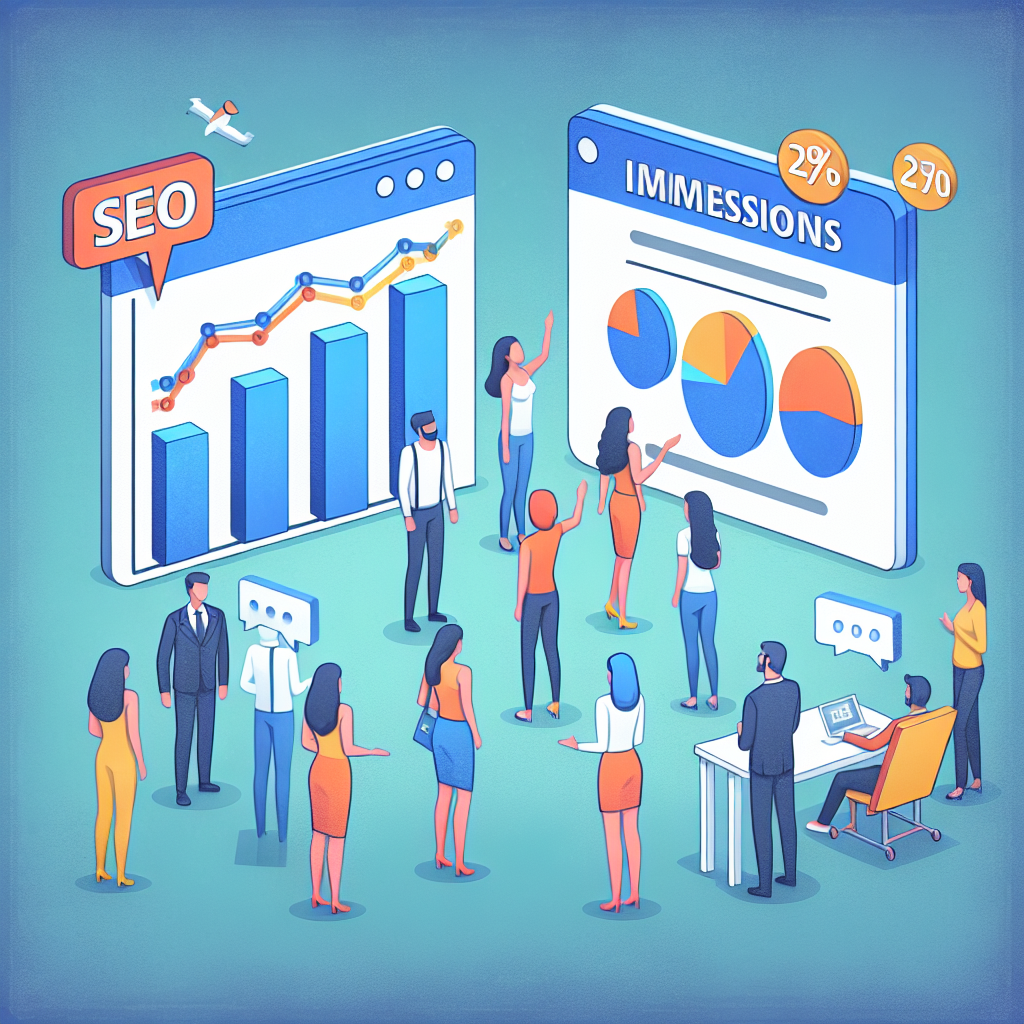Transform Your Business with Cutting-Edge Software Development and Expert Contextual Advertising Solutions

What Services Are Included in Contextual Advertising for Your Business Growth?

Are you looking to elevate your brands visibility and drive traffic to your website? Contextual advertising is an excellent solution! Lets explore the services included in contextual advertising that can significantly contribute to your business growth.
The Essence of Contextual Advertising
Contextual advertising involves displaying targeted ads based on the content users are engaging with. This method allows you to reach potential customers when theyre most interested, leading to higher conversion rates. Imagine a customer reading an article about home renovation and seeing ads for your interior design services—it’s about being in the right place at the right time! ⭐
Key Services in Contextual Advertising
- Keyword Research: Identifying the most impactful keywords for your ads is crucial. Did you know that effective keywords can boost your click-through rate by up to 200%? ⭐
- Ad Creation: Crafting engaging ads that resonate with your target audience is vital. Our team works with you to develop captivating visuals and compelling copy that stands out! ⭐
- Targeting Strategy: We utilize advanced strategies to target the right audience, ensuring your ads appear to those who would benefit most from your offerings.
- Performance Monitoring: Tracking how your ads perform is essential. We provide detailed reports, helping you understand whats working and what needs improvement. ⭐
- Budget Management: Contextual advertising is flexible regarding budget. You can control how much you spend, with costs tailored to your financial plan. How much does advertising cost per month? It varies based on your goals and audience! ⭐
Real-Life Success Stories
Let’s take a look at how businesses like yours have thrived through contextual advertising:
- Case Study 1: A local bakery implemented a contextual advertising strategy focusing on keywords related to ‘fresh bread’ and ‘organic ingredients.’ Within three months, their website visits increased by 150%, leading to a notable rise in sales! ⭐
- Case Study 2: A tech startup utilizing targeted ads on social media saw engagement rates soar—an impressive 300% increase in leads compared to traditional marketing methods. By selecting the right platforms, they maximized their reach! ⭐
Table: Contextual Advertising Services Overview
| Service | Description | Estimated Cost (EUR) |
| Keyword Research | Identifying impactful keywords | 200 |
| Ad Creation | Developing visuals and copy | 500 |
| Targeting Strategy | Targeting the right audience | 300 |
| Performance Monitoring | Creating success reports | 100 |
| Budget Management | Controlling ad spend | Variable |
| Ad Optimization | Improving ad performance | 250 |
| Monthly Support | Ongoing assistance and adjustments | 50 + 10% of budget |
| Analytics Setup | Implementing tracking measures | 150 |
| Strategy Workshops | Planning sessions for clients | 600 |
| Ad Campaign Launch | Starting the advertising campaign | 200 |
Why Choose Us?
At artivale.com, with over 20 years of experience, our team of professional specialists offers all services in one place. We guarantee tailored solutions that work! From software development to technical support, theres no need to juggle multiple companies to get the job done.
Want to supercharge your advertising efforts? Our customer relations manager, Alexandra, is ready to assist you. Give us a call at [email protected] or visit us at artivale.com to get started today!
Are you curious about how much targeted advertising typically costs? Let’s connect and discuss a custom plan that fits your budget and goals! ⭐
Frequently Asked Questions
- What services are included in contextual advertising? Contextual advertising includes keyword research, ad creation, targeting strategies, performance monitoring, and budget management.
- What type of contextual advertising is the most popular? Search engine ads and social media ads are among the most popular contextual advertising types.
- What is the difference between SEO and contextual advertising? SEO focuses on organic search traffic, while contextual advertising targets users based on their online activities.
- How does SEO differ from targeting? SEO enhances visibility through organic methods, while targeting delivers specific ads to users based on behavior.
- Can targeting be learned independently? Yes, there are numerous resources available for learning targeting techniques independently.
- How much does targeted advertising typically cost? It varies widely, with options tailored to fit various budgets, starting from as low as €200.
- How much does it cost to launch targeting on Instagram? Initial setup for Instagram ads can start at €200, followed by monthly costs based on the ad budget.
- How much does advertising cost per month? Monthly advertising costs depend on your budget; many clients find it effective to start small and scale over time.
- Are there any guaranteed results with contextual advertising? While we can’t guarantee specific outcomes, we apply proven strategies to maximize your chances of success.
- How can I get started with contextual advertising? Simply contact us at [email protected] or visit our website artivale.com to discuss your needs!
Exploring the Most Popular Types of Contextual Advertising: Which One Fits You?

Are you ready to dive into the world of contextual advertising? Choosing the right type can make all the difference for your business! Let’s explore the most popular options and help you find the perfect fit. ⭐
The Power of Search Engine Ads
Search engine ads, such as Google AdWords, are among the most widely recognized forms of contextual advertising. When users search for specific keywords, your ads can appear at the top or bottom of the search results, reaching potential customers exactly when they’re looking for services like yours. Imagine a potential client searching for “best local IT services”—if your ad pops up, you have a prime opportunity to convert that interest into action! ⭐
Display Advertising
Display advertising involves visual ads placed on various websites within the Google Display Network. These ads can be in the form of banners, images, or videos, targeting users based on their online behavior and interests. For instance, if someone frequently visits travel blogs, you can showcase ads for your vacation planning service on those websites. This helps keep your business top-of-mind for users who might not be actively searching but are great candidates for your services! ⭐
Social Media Ads
With billions of active users, platforms like Facebook, Instagram, and LinkedIn provide incredible opportunities for contextual advertising. Social media ads let you tailor your messaging based on user demographics, interests, and even their previous engagement with your brand. If you’re a fashion retailer, for instance, you can target ads to users who have shown interest in similar products. This targeted approach can result in higher engagement rates! ⭐
Native Advertising
Native advertising blends seamlessly with the content the user is already engaging with. Whether it’s a sponsored article or a promoted post, these ads look like part of the organic content, making them less intrusive. For example, consider a fitness app promoting an article about healthy lifestyles; it’s informative and relevant, allowing for a natural integration of your product into the user’s browsing experience. This form can lead to higher retention and conversion rates! ⭐️♂️
Video Advertising
Video formats are becoming increasingly popular in contextual advertising. Platforms like YouTube allow you to showcase video ads tailored to viewers’ interests. With captivating visuals and storytelling, video ads can significantly increase brand awareness and engagement. Picture a consumer watching a cooking tutorial, interrupted with a well-timed ad for your kitchen appliance—this type of contextual placement can lead to substantial conversions and sales! ⭐
Choosing the Right Type for Your Business
When it comes to selecting the best type of contextual advertising, consider your target audience and marketing goals. Here are some questions to help guide your decision-making:
- Who is my target audience? Understand who you want to reach—demographics, interests, and behavior. ⭐
- What is my budget? Set a financial plan that fits your business needs and determine which ads offer the best ROI. ⭐
- What type of content does my audience engage with? Tailor your choice based on the platforms your audience frequents. ⭐
- What are my goals? Whether it’s increasing brand awareness or boosting sales, define clear objectives for your advertising campaign. ⭐
Real-Life Success Stories
Successful businesses leverage different types of contextual advertising:
- Case Study 1: An e-commerce store saw a 120% increase in sales after switching from traditional ads to search engine ads, optimizing their keywords and targeting effectively! ⭐️
- Case Study 2: A local restaurant used display ads to promote seasonal specials and achieved a 30% boost in foot traffic within a month. ⭐️
Benefits of Contextual Advertising
- Increased Visibility: Your brand gets noticed in multiple online environments. ⭐
- Cost-effective Options: Many advertising types offer scalable costs, letting you control your budget. ⭐
- Data-driven Insights: Monitor performance and adjust strategies based on real-time metrics to improve results! ⭐
Getting Started with Contextual Advertising
If you’re eager to dive into contextual advertising, it’s time to partner with a professional team that can guide you through the process. At artivale.com, we have over 20 years of experience helping businesses like yours navigate the intricacies of digital marketing. Our team will assist you in selecting the best advertising types tailored to your goals.
Ready to boost your online presence? Reach out to our customer relations manager, Alexandra, at [email protected], or visit us at artivale.com today! ⭐
Frequently Asked Questions
- What type of contextual advertising is the most popular? Search engine ads and social media ads are among the leading types due to their wide reach and effectiveness.
- How can I determine the best contextual advertising type for my business? Identify your target audience, business goals, and budgeting to help narrow down your options.
- What is the difference between contextual ads and traditional ads? Contextual ads target users based on their online behavior, while traditional ads are often more general and may not consider user intent.
- How much does it cost to run contextual advertising? Costs vary widely based on the advertising type, with options available to suit various budgets.
- Can I track the performance of my contextual ads? Absolutely! Most platforms provide detailed analytics to help you measure your ads effectiveness.
- Are there any guarantees with contextual advertising success? While success isn’t guaranteed, utilizing proven strategies can significantly enhance your chances of achieving good results.
- How long does it take to see results from contextual advertising? Results can vary, but many businesses begin to see traction within weeks of launching their campaigns.
- Can I run multiple types of contextual ads simultaneously? Yes! Many successful campaigns utilize a mix of ad types to maximize visibility and engagement.
- What role does keyword selection play in contextual advertising? Keywords are crucial in targeting the right audience and ensuring your ads appear in relevant search results.
- How can I get started with contextual advertising? Contact us at [email protected] or visit artivale.com to discuss your advertising goals and options!
SEO vs. Contextual Advertising: What’s the Real Difference and Why It Matters?

In the world of digital marketing, two heavyweights often take center stage: SEO (Search Engine Optimization) and contextual advertising. Each has its unique benefits and challenges, and understanding the differences can help you make informed decisions for your business! Let’s break it down. ⭐
What is SEO?
SEO is the process of optimizing your website and content to rank higher in organic search engine results. The goal is to attract users who are actively searching for information, products, or services related to your offerings. Imagine potential clients searching for “best web development services”—if your website ranks at the top, they’re likely to click on your link! ⭐️
What is Contextual Advertising?
In contrast, contextual advertising involves placing ads in front of users based on their current online activity and interests. This method delivers targeted ads to users while browsing other websites, tailoring content to their profiles and behaviors. For example, if someone often reads about technology, they might see ads for the latest gadgets while visiting a completely unrelated site. Contextual advertising is all about capturing eye balls at the right time! ⭐
Key Differences Between SEO and Contextual Advertising
- Cost Structure: SEO is primarily about long-term investment, involving ongoing efforts in content creation, backlinks, and optimization. Contextual advertising typically operates on a pay-per-click (PPC) basis, where you pay for each click or impression your ad receives. This can yield quicker results but may require a continuous budget. ⭐
- Time to Results: SEO can take weeks or even months to show significant results as search engines crawl and index your site. In contrast, contextual advertising can generate immediate visibility and traffic once the ads are live, making it appealing for urgent marketing campaigns. ⏳
- User Intent: SEO targets users with a clear intent—they’re actively searching for answers. Contextual advertising captures users based on their browsing behavior, which means they may not be actively seeking your product or service at that moment. Both strategies have merits, depending on your goals and audience! ⭐
- Longevity: With SEO, once you achieve a high ranking, it can provide consistent traffic over time, requiring less maintenance compared to ongoing ad spend in contextual advertising. However, search rankings can fluctuate based on algorithm changes. On the other hand, contextual ads offer immediate results, but once you stop paying, the visibility vanishes quickly. ⭐
When to Use SEO vs. Contextual Advertising
Your marketing strategy doesn’t have to choose one over the other! Both can complement each other effectively. Here’s how to decide:
-
Use SEO When:
- You aim for long-term organic traffic growth.
- Your budget is limited, and you want to minimize ongoing costs.
- You want to build authority and trust in your niche over time. ⭐
-
Use Contextual Advertising When:
- You’re launching a new product and need immediate exposure.
- You have a flexible budget that can accommodate ad spend.
- You’re running time-sensitive promotions or events. ⭐
Real-Life Applications
Let’s look at how businesses have leveraged both strategies:
- Case Study 1: A fitness studio focused on SEO by creating valuable content around healthy living, which helped them gain organic traffic over six months, eventually leading to a 50% increase in leads. ⭐️♀️
- Case Study 2: An online clothing retailer utilized contextual advertising to promote a seasonal sale. Their targeted ads quickly resulted in a 200% increase in clicks and a significant boost in conversions, effectively maximizing their promotional efforts in a limited timeframe. ⭐
Conclusion: Finding Your Balance
Ultimately, both SEO and contextual advertising are effective strategies but serve different purposes. By understanding the real differences between the two, you can create a tailored marketing approach that aligns with your business objectives: whether you’re looking for immediate results or sustainable long-term growth.
If you want to explore how both can work in harmony for your business, get in touch with the experts at artivale.com. Our customer relations manager, Alexandra, is here to help you navigate your digital marketing journey. Call us at [email protected] or visit our website artivale.com today! ⭐
Frequently Asked Questions
- What’s the main difference between SEO and contextual advertising? SEO focuses on organic search rankings, while contextual advertising places paid ads based on user behavior.
- How long does it take to see results from SEO? SEO generally takes weeks to months to show significant outcomes.
- Is contextual advertising more expensive than SEO? Contextual advertising can involve higher ongoing costs due to its pay-per-click model, while SEO is more of a long-term investment.
- Can I use both strategies simultaneously? Absolutely! Using both can provide balanced results and increased visibility across different channels.
- What should I prioritize, SEO or contextual advertising? It depends on your business goals; consider using SEO for long-term growth and contextual advertising for immediate results.
- Do I need to continuously invest in SEO? Yes, while some gains are sustainable, ongoing efforts in content and optimization are important for maintaining rankings.
- Can contextual ads guarantee sales? They can increase visibility and traffic, but there’s no guarantee of conversion; quality offerings and landing pages are crucial.
- How can I measure the effectiveness of SEO? Utilize tools like Google Analytics to track organic traffic, bounce rates, and conversion rates resulting from your SEO efforts.
- What industries benefit most from contextual advertising? Contextual advertising can benefit various industries, especially e-commerce, travel, and services targeting specific demographics.
- How can I get started with SEO or contextual advertising? Reach out to our team at artivale.com for tailored strategies designed for your business goals!
Submit your details in the form and our team will personally get in touch with you within the next business day to discuss your needs
